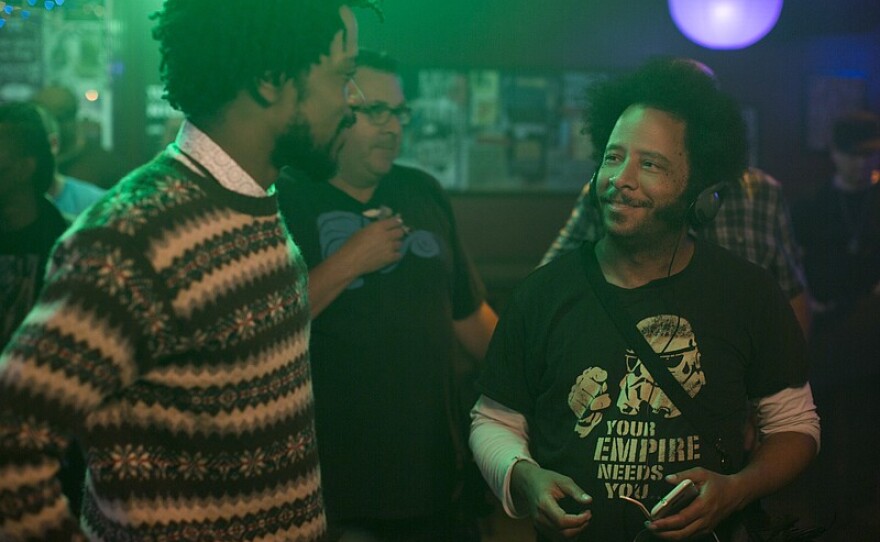Time to geek out about two very different things: James Bond and the directorial debut of rapper Boots Riley.
James Bond is scheduled to come back for the 25th time in the official 007 franchise in 2019. And today I will be talking about all things Bond with actor Tom Steward who created a one-man show for the San Diego International Fringe Festival called "One Man Bond" in which he takes us through all six actors and 24 Bond films in less than 60 minutes.
But before we go off on our MI6 mission, I want to highlight a film that comes out next week that has a mission of its own — Boots Riley’s directorial debut "Sorry to Bother You" about a young man named Cassius Green who is just trying to survive in a not too distant future.
"Sorry to Bother You" maybe Riley’s first film but he comes to filmmaking after decades of success as a rapper, music producer, and activist/organizer. He had studied filmmaking back in college but got pulled away from film by music and in 1991 created the political activist hip-hop group The Coup.
"Sorry to Bother You" deals with race, capitalism, workers’ rights, art and activism. He described it as: “An absurdist dark comedy with magical realism and sci-fi inspired by the world of telemarketing.”
The film announces a bold new screen talent that also boasts assurance and maturity from decades of work mixing art and politics in music. Riley not only has something to say but he has the artistry to say it in a fresh new style that demands attention.
San Diego International Fringe Festival just ended and one of my favorites from the 11-days of eyeball busting shows was Tom Steward’s "One Man Bond."
As a fan of Bond since my earliest days, I was thrilled at the 007 geekery on display in his show as well as the impressive showmanship of taking on the entire Bond franchise in an hour. Since the franchise is at a turning point with Daniel Craig’s announced departure I thought it would be the perfect time to geek out about James Bond with someone who has just immersed himself in the entire canon of films.


